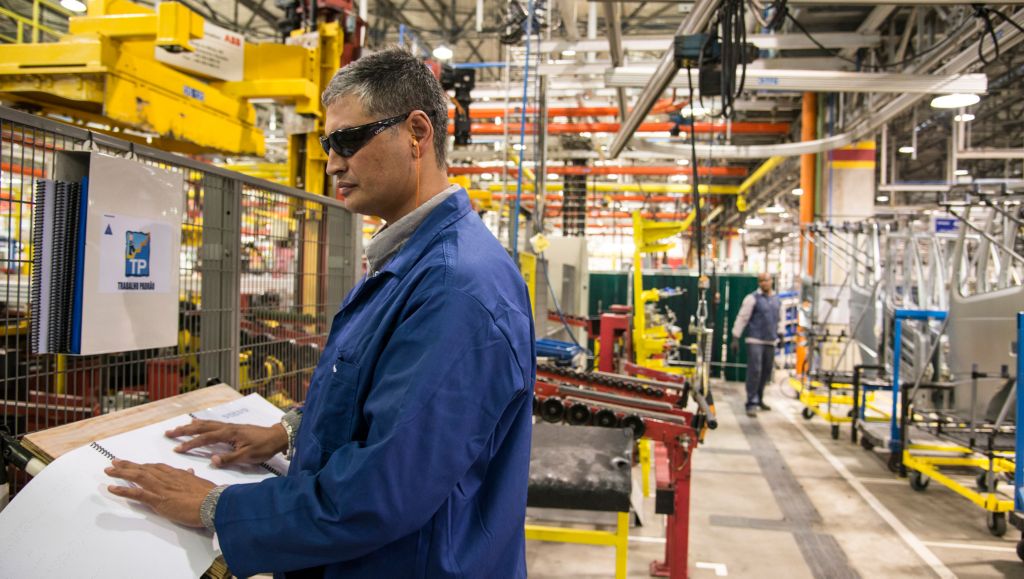Sign language and Braille are part of everyday work life in Curitiba


Since Rafaela de Camargo started working in Curitiba six years ago, she has learned to get by using hand signals and writing messages to her colleagues. But during meetings and presentations when she was the only one who could not hear things got more complicated.
That problem has now been resolved thanks to Volvo Group’s inclusive attitude – and people who practice it like Gislaine Oliveira, a gearbox assembler at the Curitiba plant.
Gislaine Oliveira is fluent in Brazilian sign language and is one of those responsible for assisting special needs employees. She is part of a well-drilled team who have put inclusion at the top of the agenda.
When Rafaela de Camargo needs assistance in union meetings or help in discussions with managers or colleagues, she no longer has to resort to writing everything down. Now Gislaine Oliveira is called on to translate.
“There was a period when it was difficult and there was no one to help,” Rafaela de Camargo says on a quick break from working on the Volvo FH line. “Gislaine is very important and a great help. We need these people for inclusion and communication.”
Brazil has a quotas law aimed at helping people with disabilities find jobs and companies must hire a certain number of workers with disabilities. The number varies according to size and the Volvo Group’s legal target is to hire a minimum of five per cent of employees with disabilities.
“Independent of the law, the Volvo Group is doing something for the community,” says Gerson Morassutti, Coordinator of Technical Training.
A key point for the Volvo Group in Brazil is its aim to employ a diverse workforce. This is good for both the Volvo Group and the community.
One of Volvo Group’s most successful hires is Jose Claro Melo, a blind operator who uses his advanced sense of touch to find imperfections in paint and bodywork.
“They told me they were having trouble finding defects and they asked me to try out and I did,” he said. “And it worked out. Now I also work fitting door hinges.”
Jose Claro Melo says blind people are often restricted in job opportunities but at the Volvo Group he has gained widespread respect.
“People in the blind community and people at Volvo Group noticed that I was capable. This work has made me an example for other blind people,” he says.
The Volvo Group also benefits.
“He sees things that other people can’t see,” says Gerson Morassutti. And deaf people are often able to concentrate better because they don’t hear distractions. It’s always hard to generalise, but the work they do is exceptional.”
Jose Claro Melo’s work station has been adapted with Braille instructions and he gets around the factory grounds thanks to tactile flooring. Volvo Group has also tried to bolster inclusion by offering free sign language courses to interested employees.
Each special needs worker also has a “godfather,” a nearby colleague who can assist them and ensure their safety in case of emergencies, such as when an alarm goes off.
Most importantly of all, the workers feel at home here thanks to an open policy.
“Before I came here, I suffered a lot of prejudice for being different,” said Lyndsen Gabardo, a deaf administrative assistant. “The Volvo Group cares about its employees, they give us opportunities to get on. Today I am very well respected by my colleagues and my boss. I am proud of my team.”